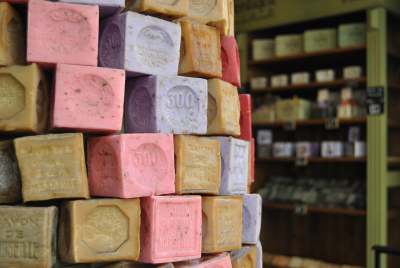Which is the most ethical type and brand of soap to buy?
Should you buy a bar of soap, liquid soap or hand sanitiser?
This guide covers soaps in both bar and liquid form, including handwashes and hand sanitisers. As the score table above shows, there are many companies offering alternatives which are organic, made without the use of animal ingredients, or palm oil free.
There are hundreds of other small companies making soap which we could not cover here. Look out for your local supplier.
The score table also shows the huge difference between low scoring big high street brands, and the much higher scoring small, independent and often vegan and/or organic brands.
Which brands of soap dominate the market?
The UK’s soap, bath and shower gel market is dominated by just three major brands – Carex, Dove, and Radox.
Radox and Dove are owned by multinational Unilever whilst Carex is owned by PZ Cussons, which also owns other top selling brands.
With so many high scoring small and independent soap brands, and medium scoring more mainstream brands, there's definitely plenty of choice when it comes to finding ethical soap.
What about The Body Shop?
We removed the Body Shop from this guide when its private equity owner, Aurelius, called in the administrators in February 2024. It was bought by Auréa Group in September 2024. We will review its ownership and ethics when we review the guide as a whole.



